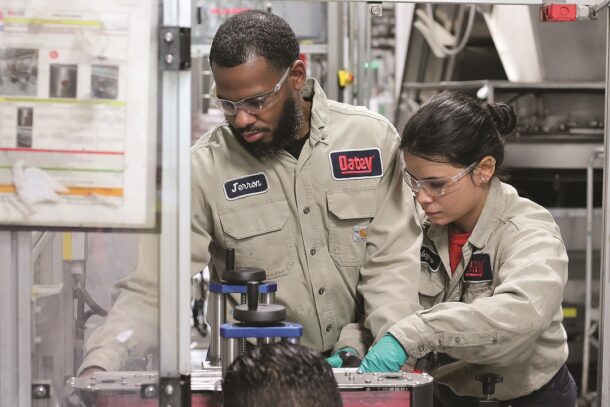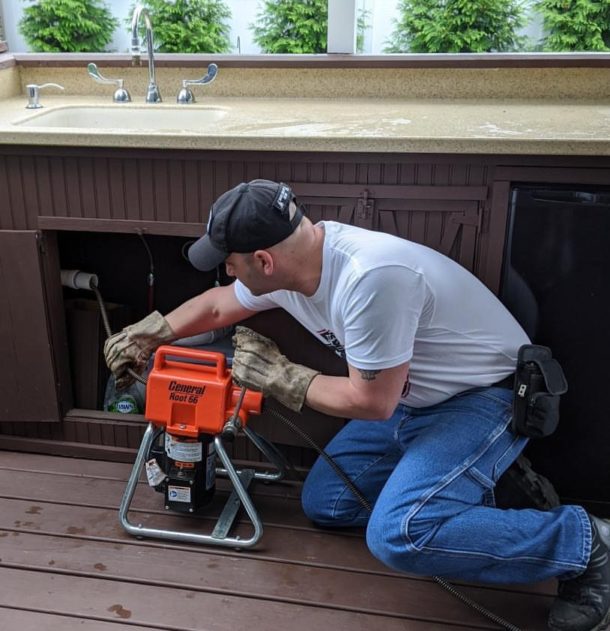When it comes to looking after your business equipment, it’s important to do what you can to maintain and repair all of it. That way, you help save yourself some money as a business in the future. Keep your equipment clean To help ensure your equipment stands the test of time, it’s always good to Read more
cleaning

When it comes to looking after your business equipment, it’s important to do what you can to maintain and repair all of it. That way, you help save yourself some money as a business in the future.
Keep your equipment clean
To help ensure your equipment stands the test of time, it’s always good to be proactive in keeping it clean. Ensuring proper cleaning schedules are in place will help keep the equipment in good condition, regardless of how much or how little it’s used.
Cleaning your equipment is certainly helpful and can make a big difference to how well it functions now and in the future. The more you keep up with this schedule, the better it is for your business fund too.

Maintain your machines with regular checks
Maintaining your machines with regular checks is certainly important to do and it’ll help in flagging up any potential problems with the machines themselves.
It’s better to spot a problem than to simply ignore it and hope it’ll go away. If you’re not keeping up with the maintenance on your machines, then that’s where problems will start to appear and it can end up being more costly as a result.
Have engineers out for small repairs and areas of concern
Engineers are great to have when it comes to carrying out small repairs. They’ll also be able to spot any underlying problems or areas of concern that might have flown under the radar for some time.
Even when you’re regularly checking the equipment yourself or having staff members do it, you can’t always guarantee that they’re going to be able to find a problem.
It’s always better to have the engineers come out to do checks and conduct regular maintenance to give it the all-clear. They’ll also be able to help with equipment that needs repairing, like pressure washer repair services for example.
Follow the instruction manuals to the letter
Instruction manuals are there for a reason. They come with the equipment whether that’s a small piece of equipment you can fit in your hand, to big machinery items that need training to get to grips with how to use it all.
Following these instruction manuals is helpful when you want to keep the machines and equipment in good condition, so don’t ignore them, otherwise, you might regret it.
Make sure you replace the equipment when required
Finally, make sure that you’re replacing any equipment and your electrical supply parts and components, too, as and when it’s needed. It’s important to do this because if you’re not replacing the equipment, then it could cause a hazard for you and your staff. It’s better to get rid of and replace it than run the risk of any further damage.
Be aware of what equipment was purchased and when so that you know roughly when you might need to get it replaced with something new.
These tips will hopefully help you to maintain your equipment and make repairs where necessary to keep efficiency throughout the business.

Salary guides provide detailed breakdown of earnings across the HVAC, plumbing, roofing, cleaning, electrician, handiwork, landscaping, and painting industries Jobber, the leading provider of home service management software, today announced the launch of comprehensive salary guides to help home service entrepreneurs hire and retain the right people to grow their home service business and scale operations Read more
Salary guides provide detailed breakdown of earnings across the HVAC, plumbing, roofing, cleaning, electrician, handiwork, landscaping, and painting industries
Jobber, the leading provider of home service management software, today announced the launch of comprehensive salary guides to help home service entrepreneurs hire and retain the right people to grow their home service business and scale operations. Jobber’s salary guides outline salary information for the HVAC, plumbing, roofing, cleaning, electrician, handiwork, landscaping, and painting industries. Guides feature easy-to-read graphics that display average salaries organized by state, years of experience, and title.

With job openings outpacing qualified candidates in many home service industries, hiring and retaining employees have become major challenges. The fierce competition has left many home service entrepreneurs with questions about what qualifies as a fair salary for employees in today’s market. Jobber’s salary guides are designed to address these questions and provide home service leaders with the information they need to grow their teams.
“When home service companies expand their teams, they strengthen their communities by providing meaningful local job opportunities and the training and skill development needed to build lifelong careers,” said Sam Pillar, CEO & co-founder of Jobber. “Our salary guides are just one of the ways Jobber is helping to equip home service businesses with the resources and tools they need to compete with large organizations and achieve success.”
A few highlights from the salary guides include:
Average Annual Salary for Experienced Roles by Industry:
- HVAC Service Manager: $72,899
- Journeyman Plumber: $56,054
- Experienced Roofer: $50,558
- Experienced Cleaner: $35,299
- Journeyman Electrician: $58,180
- Experienced Handyman: $66,086
- Experienced Landscaper: $41,553
- Industrial Painter: $40,598
Average Hourly Rates by Industry:
- HVAC Technician: $20.29
- Plumber: $22.64
- Roofer: $17.95
- Cleaner: $12.58
- Electrician: $23.00
- Handyman: $24.30
- Landscaper: $14.62
- Painter: $17.00
Data for Jobber’s salary guides was sourced from Payscale, the world’s largest salary database made up of more than 65 million salary profiles and 15,000 job titles.
To learn more about Jobber’s salary guides, visit https://getjobber.com/resources/salary-guides/. For additional resources around hiring best practices and other management best practices, visit https://academy.getjobber.com/.
